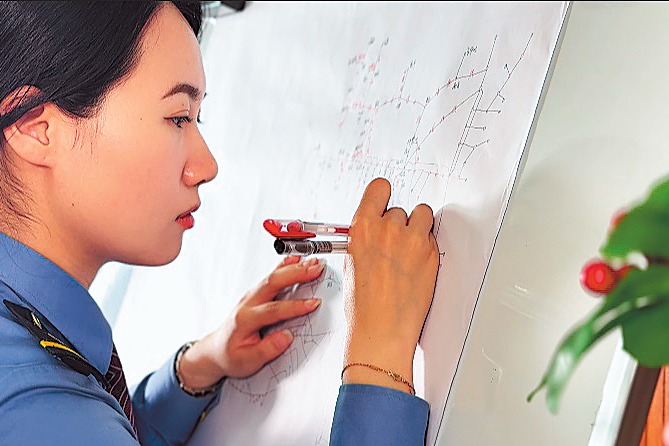Evidence of intentional baby swap insufficient, police say

Police in Henan province have decided not file a case against a couple accused of intentionally switching their baby with another infant due to insufficient evidence.
The decision, made by the public security bureau in Kaifeng's Gulou district, was posted on the bureau's micro blog on Wednesday. Under China's Criminal Procedure Law, police do not need to file a case if they fail to find sufficient evidence or the offenses are minor.
A woman surnamed Xu arranged for a relative to file a report to police on March 15 accusing the couple and some medical staff members at a Henan hospital of committing crimes by switching the babies on purpose.
The accused couple were the biological parents of Yao Ce, who had advanced liver cancer and died in Beijing at the age of 28 on March 23. Xu was the woman who raised him.
His case aroused huge public attention in April last year when media reported that Xu, from Jiangxi province, had found out Yao, who she had been raising for 28 years, was not her biological son after trying to donate part of her liver to save his life.
Xu went to Henan and found Yao's biological parents, hoping the couple could offer Yao a liver transplant. She discovered that Yao's biological mother is a hepatitis B carrier, and that Yao was supposed to be given a high-dosage hepatitis B vaccine shortly after his birth. However, the vaccine was incorrectly administered to Xu's healthy son instead.
Yao and his biological parents later initiated a lawsuit against the Huaihe Hospital of Henan University, where Yao was born, after failing to negotiate a compensation deal with it.
In February, the hospital was ordered by a court in Henan to pay 1 million yuan ($154,000) to Yao and his biological parents, Guo Xikuan and Du Xinzhi, for medical irregularities.
But Xu still had doubts and wrote on her micro blog on Feb 25 that normal infants and babies whose mothers were diagnosed with hepatitis B should have been cared for in different areas.
She found that the household registration of Guo Wei, her biological son, was only applied for in 1995, three years after his birth, and questioned whether a nurse responsible for looking after infants at the hospital at the time of his birth was a relative of Guo Xikuan, given the similarity of their names.
She then entrusted a cousin to call the police in Gulou last month.
After an investigation that lasted about a month, the police said Guo Wei's household registration was late because he was a second child and it took some time to get administrative approval.
The investigation also found that Guo Xikuan and the nurse were not relatives, adding that evidence also showed the hospital's management was disordered in the 1990s.
Henan University admitted faults in the hospital's management, but said on Wednesday that the Law on Preventing Infectious Diseases, adopted in 1989, as well as amendments to it in 2004 and 2013, do not require hospitals to separate mothers with hepatitis B and their babies from others.
"We'll learn a lesson from the case and intensify management to avoid similar incidents," it said. "If someone involved in the case in our hospital is found to have violated disciplines and laws, we'll deal with them seriously."
- Former chairman of Chinese aviation industry corporation indicted
- China unveils 2025-2030 plan to promote healthy environments
- Xinjiang youths participate in 11-day public welfare summer camp in Beijing
- Chinese scientists uncover distribution pattern of dryland biocrusts for better sand control
- China upgrades flood emergency response in 4 regions
- Hong Kong issues top rainstorm warning





































